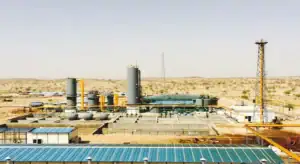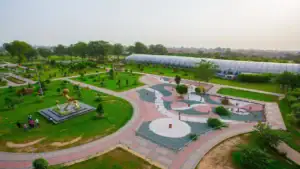Islamabad, April 11: Minister for Power Sardar Awais Khan Leghari outlined the government’s strategy to phase out uniform tariffs and improve transparency in the power sector through system upgrades in both distribution and transmission.
He reaffirmed the government’s commitment to sustainable, market-driven reforms under its broader public-private partnership (PPP) framework.
During a meeting with Pankaj Gupta, World Bank’s Regional Director for Infrastructure, Leghari discussed the proposed 10-Year Transmission Partnership, which would mark the beginning of a long-term collaboration between the World Bank and the National Transmission and Despatch Company (NTDC).
The first phase of this engagement includes a $400 million investment in reactive power compensation—a critical step toward improving grid stability and efficiency.
The broader plan aims to build a $2 billion-plus investment platform, with co-financing from institutions such as the Asian Development Bank (ADB), the Asian Infrastructure Investment Bank (AIIB), and the International Finance Corporation (IFC).
This platform will combine both reform and investment planning, serving as a key component of Pakistan’s energy transition.
Integrated Energy Plan
Discussions also highlighted the urgent need for an Integrated Energy Plan (IEP). The absence of coordination between the power and petroleum sectors has resulted in inefficient infrastructure investments, supply-demand imbalances, and poorly aligned strategies for gas-based power generation.
A unified IEP would help align upstream gas development with downstream power generation and transmission planning.
The World Bank stressed that future generation and transmission projects must follow a transparent, data-driven, least-cost planning model.
Past decisions have led to overcapacity, high operational costs, and reliance on expensive, imported fuels.
Adopting a least-cost framework is deemed essential to avoid deepening the financial challenges facing the power sector.
Read More: World Bank Gives Nod to $102M for Pakistan Microfinance Sector
Minister Leghari provided updates on key reform initiatives, including:
Progress on DISCO privatisation and NTDC restructuring.
The transition to the Competitive Trading Bilateral Contract Market (CTBCM).
Enhanced transparency and system improvements in power distribution and transmission.
A phased shift away from the uniform tariff model, taking into account provincial dynamics and consumer affordability.
Both parties acknowledged the strategic significance of hydropower as a clean, cost-effective, and indigenous energy source. Leghari emphasized its dual role in meeting energy needs and ensuring long-term water security.
The World Bank reiterated its long-standing support, noting Pakistan’s untapped 80 GW hydropower potential, particularly through the Indus River system.
Ghazi Barotha and Tarbela
Past successful collaborations like Ghazi Barotha and Tarbela were cited as models for future efforts.
The Minister added that public-private partnerships will be pivotal in mobilizing investment and technical expertise.
He emphasized that the government is at a decisive point in the privatisation of power distribution companies, and is committed to difficult but necessary reforms to ensure a secure and affordable energy future.
Leghari also explained that upon taking office, the government prioritized reducing reliance on furnace oil and imported fuels, in line with directives from the Prime Minister.
Stabilizing the national grid and enhancing the performance of distribution companies have been set as top objectives.
Additionally, policies on net metering and solar energy are being reviewed to better reflect evolving energy needs.
Pankaj Gupta, recalling his longstanding involvement with Pakistan’s energy sector since 1995, affirmed that energy remains a core focus for the World Bank.
He stressed the importance of long-term strategic planning tools like the Integrated Generation Capacity Expansion Plan (IGCEP) and IEP to accurately anticipate future energy demand and resource availability.
He emphasized that careful project selection, location planning, and cost management are essential for success.
Also Read: World Bank to Invest $300 Million in Reko Diq Project
Gupta also advocated for NTDC’s central role in planning and stated that the transmission system should remain under public ownership until it is fully ready for privatisation.
The World Bank expressed its commitment to developing a comprehensive and aligned long-term strategy with Pakistan’s power sector, under its broader ten-year country framework.









